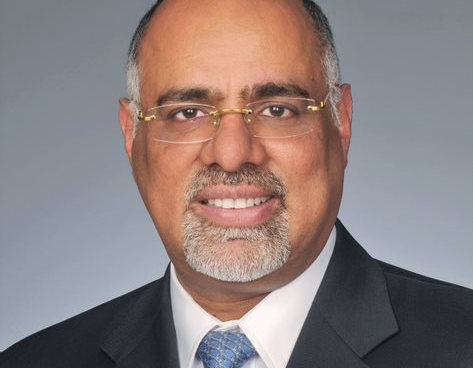
Chief marketing and communications officer and president, Healthcare, Mastercard
By Terry Troy
Raja Rajamannar, chief marketing and communications officer and president, Healthcare, Mastercard, is an accomplished global executive with more than 30 years of experience, serving the last seven years in his current position. He was recently named by Forbes as the No. 4 marketer in the world. His best-selling book, Quantum Marketing, is considered a must read for any marketer. He resides in The Village of Indian Hill near Cincinnati.
What are some of the new emerging technologies that marketers must embrace?
There are approximately two dozen new technologies on the horizon. Artificial Intelligence (AI) is going to be the single biggest disruptor. AI is going to affect every part of marketing from understanding consumers’ needs and behaviors and designing highly personalized products for them to measuring results and tweaking campaigns in real time.
Augmented Reality (AR) is another emerging tech capability which will enable marketers to engage consumers more precisely, bringing them highly personalized experiences and relevant information and value.
VR, IoT, 5G, 3D printing, autonomous cars and wearables are other examples of new technologies.
How should they incorporate these into their marketing plans?
It’s important that marketers understand the new technologies so that they can utilize them effectively. Data enables a superior understanding of consumers and for marketers; that understanding can be employed to create the right products and solutions for the right audiences.
What is Quantum Marketing and how does it fit in and overall strategy?
Quantum Marketing is a complete reinvention and reimagination of marketing that upends all the classical theories and practices of the discipline. It is a purpose-driven approach that taps into the new and emerging technologies—understanding and utilizing the immense data while respecting consumer privacy to the utmost degree is paramount. The new data-driven capabilities draw on some of the most significant insights from the sciences like behavioral economics and neuromarketing and will immeasurably help build brands, drive business growth and establish competitive advantage.
Why does marketing today face an existential crisis?
Marketers have typically come from the qualitative side of the house—creative, intuitive and gut-feel led. However, the marketing world has evolved since the early days to now be significantly data-driven and technology enabled. But most classical marketers have not kept pace with these developments, losing the plot overall. As a result, nearly 75% of CEOs have stated a lack of confidence in their marketing teams. Major companies have even eliminated CMO roles. And some brands that once relied on a marketing department to manage their 4 Ps (Product, Price, Place and Promotion) now only entrust them with promotion, fragmenting the rest to other divisions. With an onslaught of new technologies like AI, AR, IoT, VR and 5G in the imminent future, expect the biggest marketing disruption ever.
Why do you argue that we’ve reached a Fifth Paradigm of marketing today?
Marketing has been evolving since antiquity and can be broadly seen as passing through four paradigm changes until now. The first paradigm was literal, rational and product-centric, and presumed consumers simply applied logic to make purchase decisions. The second paradigm leveraged emotions. The third paradigm was ushered in by the arrival of the internet and democratized data analytics. With the advent of ubiquitous, connected mobile devices and the explosive growth of social media platforms, marketing went through another shift to the fourth paradigm. And with a perfect storm of highly disruptive new technologies, marketing will be disrupted again. It will now enter the fifth paradigm—saturated by data collecting sensors, a plethora of new devices and technologies that consumers leverage and interact with.
